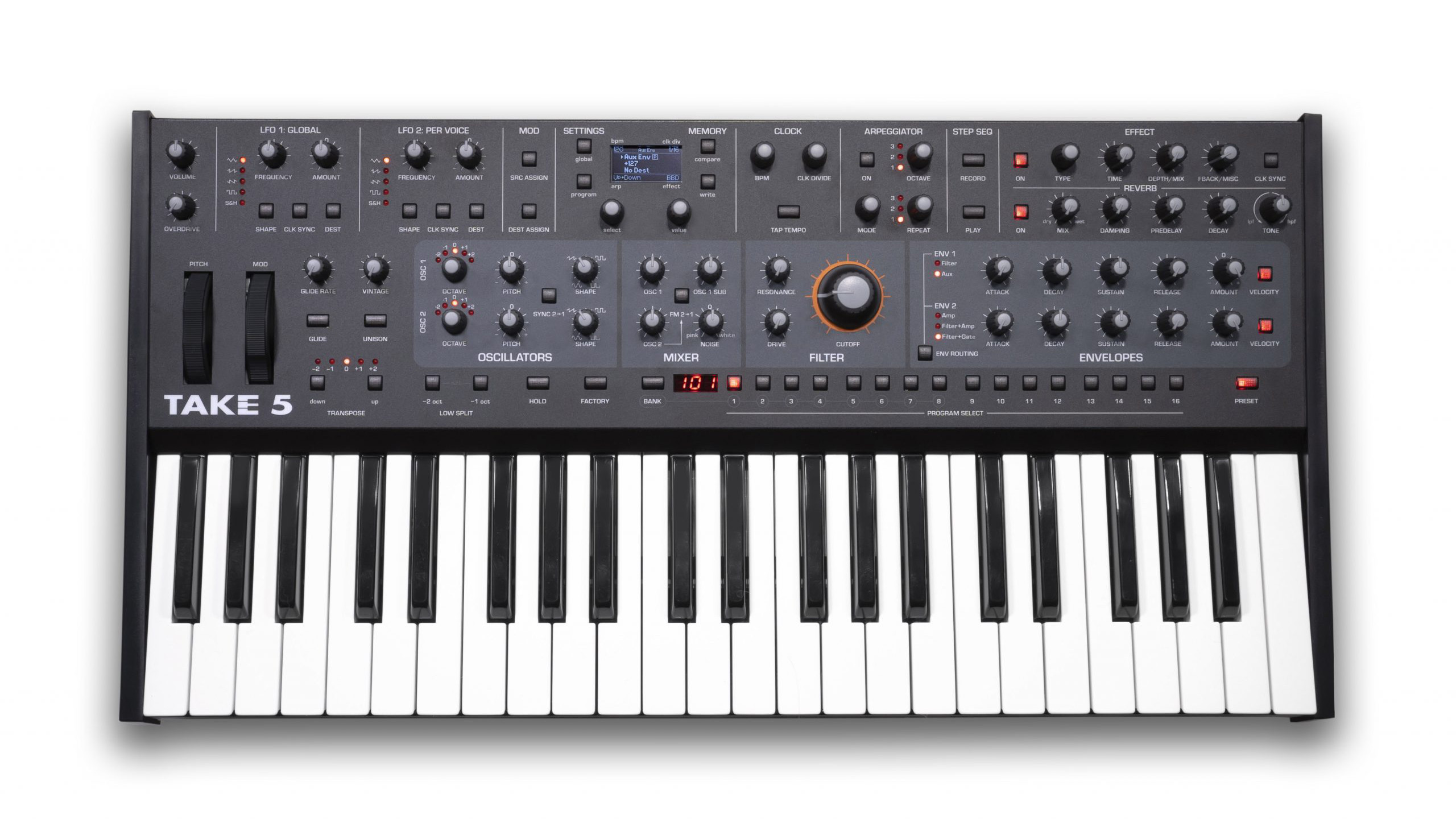NAMM 2023: Sequential has massively updated the Take 5 synth, but not quite in the way we expected
Free update doubles the sounds and adds new synthesis methods
NAMM 2023: Sequential is doubling up the power of the Take 5 synth with version 2.0 – but not quite to a Take 10. But it’s a free update so what more do you want?
The diminutive but powerful Take 5 uses a similar set of core music-making ingredients to Sequential’s grandaddy of analogue synths, the Prophet 5 – hence the ‘5’ in both names. However, when we reviewed it back in April last year, we loved the fact that, actually, it's doing something new in comparison to the the Prophet-5 and taking the sonics into fresher territories.
However, we did also suspect that an update was on the way, because Prophet-5 can be updated (by hardware) to a Prophet-10, which doubles its polyphony to 10 notes. And it looks like we've just been proven right in our predictions. And wrong.
Sequential has updated Take 5, but just on a software level and, among other tweaks, the free OS update doubles the amount of preset storage. This means you get 128 new presets plus eight new banks of locations to store your own creations.
There are synthesis additions, too, including Envelope Repeat - this lets you loop your Decay, Attack and Delay stages. There’s also a new Slew parameter that can be applied to LFO1 and LFO2 for smoother, more organic modulations.
New scales have been added (to make 65 in total), and an Oscillator 2 Filter Bypass feature enables you to do just that for what Sequential describes as “a uniquely layered timbral experience”.
The update is immediate and free so head right on over to Sequential now (if you own a Take 5 that is).
Get the MusicRadar Newsletter
Want all the hottest music and gear news, reviews, deals, features and more, direct to your inbox? Sign up here.



Andy has been writing about music production and technology for 30 years having started out on Music Technology magazine back in 1992. He has edited the magazines Future Music, Keyboard Review, MusicTech and Computer Music, which he helped launch back in 1998. He owns way too many synthesizers.
“Do you dare to ditch those ‘normal’ beats in favour of hands-on tweaking and extreme sounds? Of course, you do”: Sonicware CyDrums review
“Excels at unique modulated timbres, atonal drones and microtonal sequences that reinvent themselves each time you dare to touch the synth”: Soma Laboratories Lyra-4 review










